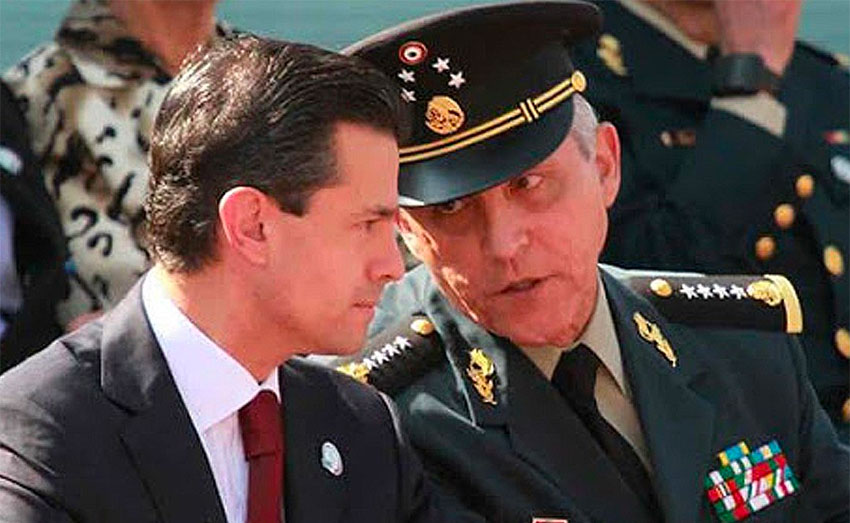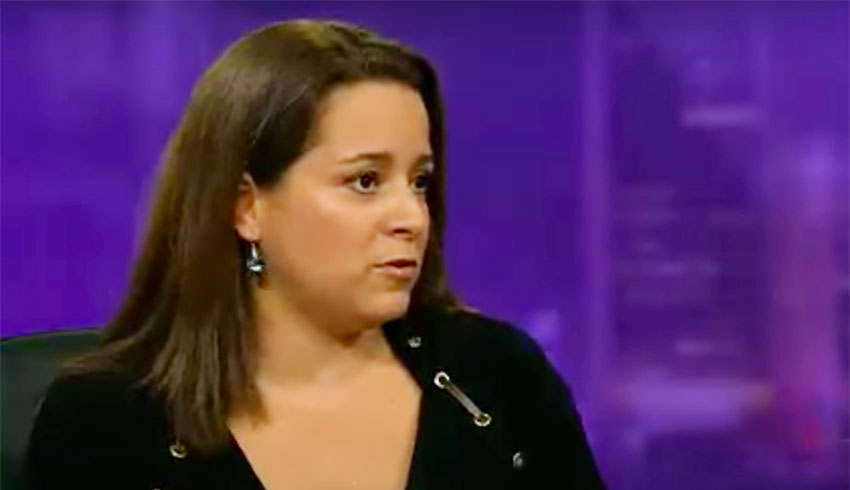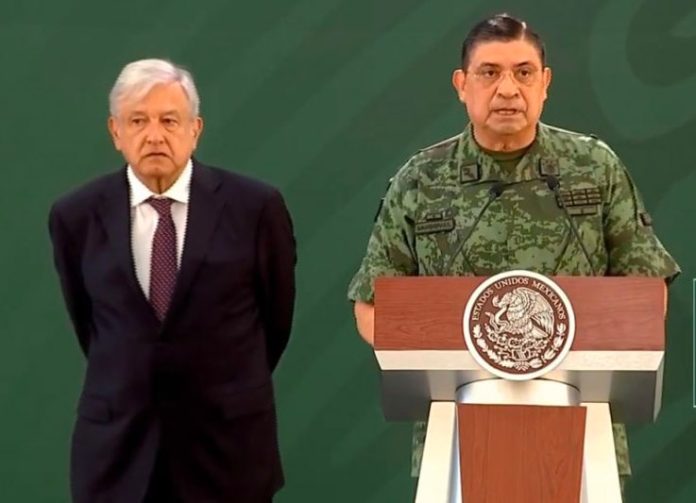Is it a good idea to appoint an army general as the next federal security minister? Is it wise to give the military so much responsibility for public security tasks? Should the navy have been given control of Mexico’s ports?
They are some of the difficult questions President López Obrador might be contemplating in light of the arrest in the United States of former defense minister Salvador Cienfuegos on drug trafficking and money laundering charges.
Despite pledging to gradually withdraw the military from the streets when he took office in late 2018, López Obrador published a decree in May ordering the armed forces to continue carrying out public security tasks for another four years.
He also put the army in charge of building the new Mexico City airport and handed control of Mexico’s customs offices and ports to the military, a move that triggered the resignation of former communications and transportation minister Javier Jiménez Espriú.
López Obrador has repeatedly portrayed the army and navy as trustworthy, corruption-free institutions despite evidence to the contrary. Those qualities make them apt for the execution of key government tasks such as public security and infrastructure construction, he has argued.
But the arrest of Cienfuegos, army chief during the entirety of former president Enrique Peña Nieto’s 2012-2018 government, raises awkward questions about the president’s reliance on the military, according to a report by the news agency Reuters.
It said that the detention of the former defense minister at Los Angeles airport last Thursday “sent shockwaves through the political establishment and embarrassed a once highly trusted institution.”
Reuters also said the arrest of the former army chief poses a threat to relations between the government and the military.
A rift between the two would place López Obrador in a very difficult position.
“He has placed his entire political capital on making his political project work through the armed forces,” Falko Ernst, senior Mexico analyst for the International Crisis Group, told Reuters.
“If he steers away from that, there’s no one else to turn to right now. He doesn’t have many other options left.”

After Cienfuegos’ arrest, the president said he had complete confidence in the current army and navy chiefs, asserting that he vetted them personally and could vouch for their honesty.
Nevertheless, he committed to a “cleansing” of the army in order to remove any officials who might have colluded with the former general, a pledge at odds with his previous declarations of confidence in the security force.
Although López Obrador publicly remains committed to using the armed forces to tackle the high levels of violent crime, unnamed officials told Reuters that he may discard plans to appoint military officials to top civilian security roles in his government.
The news agency reported that before Cienfuegos was taken into custody, speculation was growing that the president would replace current Security Minister Alfonso Durazo, who has indicated that he plans to contest next year’s gubernatorial election in Sonora, with a general.
But López Obrador would have to “pay a high political price” to appoint a military official to head up a civilian security department, said a senior police official who described Cienfuegos’ arrest as a “game changer.”
Analysts have used similarly robust language to describe the detention of the erstwhile defense minister.
César Gutiérrez Priego, a lawyer who specializes in military matters, said the arrest deals a “very heavy blow” to the image of the army and the morale of military personnel, while León Krauze, a columnist for the newspaper El Universal, said the apprehension of Cienfuegos will have “profound implications” for the army, the former and current governments and the bilateral relationship between Mexico and the United States.
In light of Cienfuegos’ arrest, criminal justice researcher Layda Negrete questioned why López Obrador and his two most recent predecessors, Peña Nieto and Felipe Calderón – who launched the so-called war on drugs in December 2006 – placed so much faith in the military.
Writing in El Universal, Negrete charged that the former presidents had – and López Obrador currently has – a “fanciful belief” that si está de verde no muerde, which roughly translates as, “If they’re in green uniforms they can do no wrong.”
With that prevailing view, the three presidents failed to implement accountability mechanisms to keep the armed forces in check, she wrote.
Thus in 2020 “there is a lack of impartial and effective supervision mechanisms” for the military, Negrete said. “We’ve given them a blank check.”
The researcher contended that the problem is “clear” – any person who is authorized to carry out security tasks and who is not subjected to effective oversight will face the temptation of colluding with organized crime.

Low-ranking military personnel and generals are “human beings that make mistakes,” Negrete added. “With weapons and power and without supervision, they will be more prone to make more and more serious mistakes.”
Negrete also noted that Calderón’s decision to deploy the army to the nation’s streets almost 14 years ago, and the perpetuation of the strategy by Peña Nieto and López Obrador – despite the latter’s claim that he favors a hugs, not bullets, approach – has not improved the security situation.
“There is not more security, there are not fewer human rights violations and there is not less corruption. The lack of accountability is what creates a favorable atmosphere for collusion with cartels, torture, mass extrajudicial killings and excessive spending on [military-led] public projects,” she wrote.
“With [the arrest of] Cienfuegos, the vulnerability of a system — not a single person — is exposed. Andrés Manuel López Obrador shouldn’t wait for the results of foreign investigations against our compatriots [former security minister Genaro García Luna is also in U.S. custody] to act,” Negrete said.
“The prosecution of serious crimes cannot be optional. … Our president doesn’t need the support of foreign governments to act nor does he need the approval of the people. He needs his own resolution to extinguish the fire at home.”
Source: Reuters (sp), El Universal (sp)
